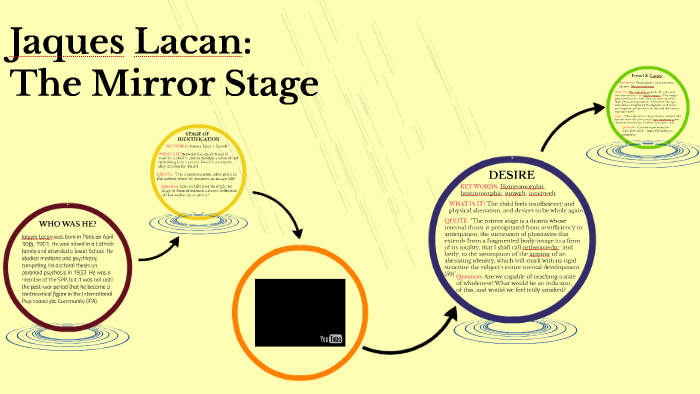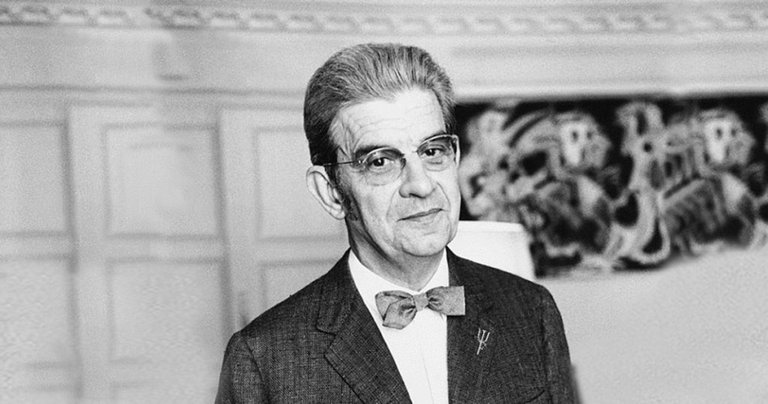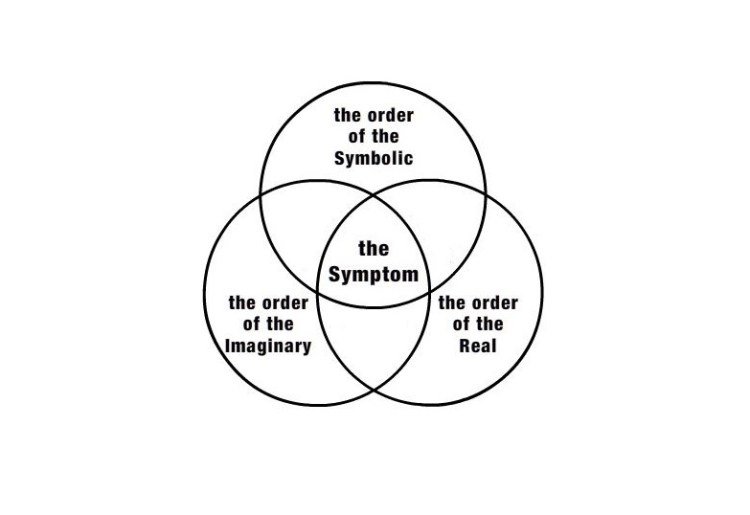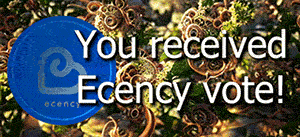As you well know, my journey here at Hive (especially at Stemsocial) is one of "learning in order to be able to talk about it". And when I set out to talk about psychoanalysis, I didn't want to stick solely to Freud, not that I've had enough of him, because Freud is infinite, vast and rich, but because the complexity, let's say, the hermeticism of Lacan has always intrigued me and I've got it into my head that I want to understand him, if only briefly. And so, here I am, starting a process that could take all year, who knows, but it has to start somewhere and there's nothing better than starting with a brief summary of who Jacques Lacan was and what exactly he did to psychoanalysis, all in a very subtle and brief way, for now.
 Source
SourceJacques Lacan (1901-1981) transcended psychoanalysis by revisiting Freud's content and looking at it from more complex and multifaceted angles. Lacan exuded Paris, where he trained and formed his theories, an erudite, theoretical and very rich scholar of concepts and possibilities, he was much more famous for his classes (or rather, seminars) than for his books, or rather, his only book. His most significant contribution was the incorporation of elements of structural linguistics, anthropology and philosophy into psychoanalysis. Lacan emphasized the fundamental role of language in the constitution of the subject. In Lacan's view, "the unconscious is structured as a language", something that is not so palatable at first taste, but which can be dissected and understood. Lacan's reasoning was always "lacunar", which made it complex even for his students; when you think you've understood his content, you realize you've just missed the clue.
 Source
SourceIf we were to summarize Lacan's main theories, we could start with "The concept of the three registers: the Real, the Symbolic and the Imaginary (RSI)". He proposed that the imaginary is formed from the identification of the self-image, which is where his fundamental concept of the "mirror stage" comes from, where the child forms their first notion of self through identification with their mirror image. The symbolic, on the other hand, is the register of language and also of the law, in other words, the subject's insertion into society and culture, its norms and rules. The Real, on the other hand, is that which escapes symbolization, that which is impossible to represent or symbolize, and I owe you that one, because I have no idea what it means (for now).
 Source
SourceFor Lacan, desire is always the desire of the Other, a formulation that highlights the fundamentally social and linguistic nature of human experience. There is also a theory of the four discourses: that of the master, the university, the hysteric and the analyst, which talks about social roles and the ties that bind them. Jouissance in Lacan's theory goes far beyond the pleasure that Freud proposed, such as object and fantasy. Everything is different in this Lacanian universe, and I confess that I feel like a newborn in this environment. I intend to intersperse these studies with the denser content of Freud, so that I have both positions in mind. At worst, I'll go mad.
So I propose a plan of articles to follow here and not lose my way. For today, all I'm doing is organizing the content I'm going to cover, and that alone is taking me a long time to put together.
Article 1 - The mirror stage and the formation of the self
Article 2 - The register of the Symbolic. Language, the unconscious and subjectivity
Article 3 - The register of the Real
Article 4 - Lacan's theory of desire. Desire is the desire of the Other
Article 5 - The four discourses
Article 6 - Jouissance: symptom and fantasy
Article 7 - The object and its function in the psychic economy
Article 8 - The end of analysis, the "sinthome".
 Source
SourceIt's going to be quite an adventure, isn't it? I'd love it if there were people here who were really interested and looking forward to this content, but I know I'm pushing themes that aren't necessarily welcome. Often it's like talking to the mirror, or to ghosts, but the rewards keep coming and frankly, that's what we're here for, more than anything. But as long as I'm here, I'm sticking to the project of doing it with pleasure and dedicating myself to topics that I'd be happy to find on a stroll through the Ecency feed. I hope that one day someone will get something out of it. As I explained, it's content for a long production period, so I'll do my best not to get distracted and forget about this mission. Thank you in advance for the space and attention you've given me by reading this article!

Português
Como vocês bem sabem, a minha jornada aqui no Hive (em especial no Stemsocial) é de "aprender para poder falar à respeito". E quando me propus a falar da psicanálise eu não queria me ater unicamente em Freud, não que eu já tenha cansado dele, porque Freud é infinito, é vasto e rico, mas por que a complexidade, digamos, o hermetismo de Lacan sempre me intrigou e eu botei em minha cabeça que quero compreende-lo nem que seja brevemente. E para isso, cá estou, iniciando um processo que poderá levar o ano todo quem sabe, mas que precisa começar de algum lugar e nada melhor que começar com um resumão sobre quem foi Jacques Lacan e o que ele fez à psicanálise exatamente, tudo de forma muito sutil e breve, por enquanto.
 Source
SourceJacques Lacan (1901-1981) transcendeu a psicanálise ao revisitar o conteúdo de Freud e observá-lo por ângulos mais complexos e multifacetados. Lacan transpirava Paris, foi onde formou-se e formou suas teorias, um erudito, teórico e riquíssimo estudioso de conceitos e possibilidades, foi muito mais famoso por suas aulas (ou melhor, seminários) do que por seus livros, ou melhor, seu único livro. Sua contribuição mais significativa foi a incorporação de elementos da linguística estrutural, da antropologia e da filosofia à psicanálise, Lacan enfatizava o papel fundamental da linguagem na constituição do sujeito. Na visão de Lacan "o inconsciente é estruturado como uma linguagem", algo que não é tão palatável a primeira degustação, mas que pode ser dissecado e compreendido. O raciocínio de Lacan sempre foi "lacunar" o que o tornava complexo mesmo para seus alunos, quando você pensa que compreendeu seu conteúdo, você percebe que acabou de perder a pista.
 Source
SourceSe fosse para resumir as principais teorias de Lacan, poderíamos começar com "O conceito dos três registros: o Real, o Simbólico e o Imaginário (RSI)". Ele propôs que o imaginário se forma a partir da identificação da auto-imagem, de onde vem seu conceito fundamental "estádio do espelho", onde a criança forma sua primeira noção de eu através da identificação com sua imagem especular. Já o simbólico seria o registro da liguagem e também da lei, em outras palavras, a inserção do sujeito na sociedade e cultura, suas normas e regras. Já o Real é aquilo que escapa à simbolização, o impossível de ser representado ou simbolizado, e esse eu ficarei devendo para vocês, por que não faço a minima ideia do que quer dizer (por enquanto).
 Source
SourceJá o desejo para Lacan é sempre o desejo do Outro, uma formulação que ressalta a natureza fundamentalmente social e linguística da experiência humana. Existe ainda uma teoria dos quatro discursos, que são eles: o do mestre, da universidade, da histérica e do analista, que fala sobre papéis sociais e os laços que os une. O gozo na teoria de Lacan é muito além do prazer que Freud propôs, tal qual objeto e fantasia. Tudo é diferente nesse universo Lacaniano, e confesso que me sinto um recém nascido nesse meio. Eu pretendo intercalar esses estudos com o conteúdo mais denso de Freud, para assim ter as duas posições em mente. Na pior das hipóteses irei ficar louco.
Proponho então um plano de artigos para seguir por aqui e não me perder em meus próprios caminhos. Por hoje, tudo que faço é organizar o conteúdo que irei abordar, e só isso me toma um belo tempo de construção.
Artigo 1 - O Estádio do espelho e a formação do eu.
Artigo 2 - O registro do Simbólico. A linguagem, inconsciente e subjetividade.
Artigo 3 - O registro do Real
Artigo 4 - A teoria do desejo em Lacan. O desejo é o desejo do Outro.
Artigo 5 - Os quatro discursos
Artigo 6 - O gozo: sintoma e fantasia.
Artigo 7 - O objeto e sua função na economia psíquica.
Artigo 8 - O fim de análise o "sinthoma".
 Source
SourceSerá uma bela aventura não é mesmo? Eu adoraria que houvessem pessoas aqui realmente interessadas e que ansiassem por esse conteúdo, mas sei que estou empurrando temáticas que nem são necessariamente bem vindas. Muitas vezes é como falar com o espelho, ou com fantasmas, mas as recompensas continuam vindo e sinceramente, é pra isso que estamos aqui, acima de qualquer coisa. Mas já que aqui estou, sigo no projeto de fazer com prazer e dedicando-me a temas que eu ficaria feliz em encontrar num passeio pelo feed do Ecency. Espero que um dia alguém tire algum proveito disso. Como expliquei, é conteúdo para um longo prazo de produção, eu farei o possível para não me distrair e esquecer dessa missão. Agradeço desde já o espaço e atenção que me deu lendo esse artigo!





